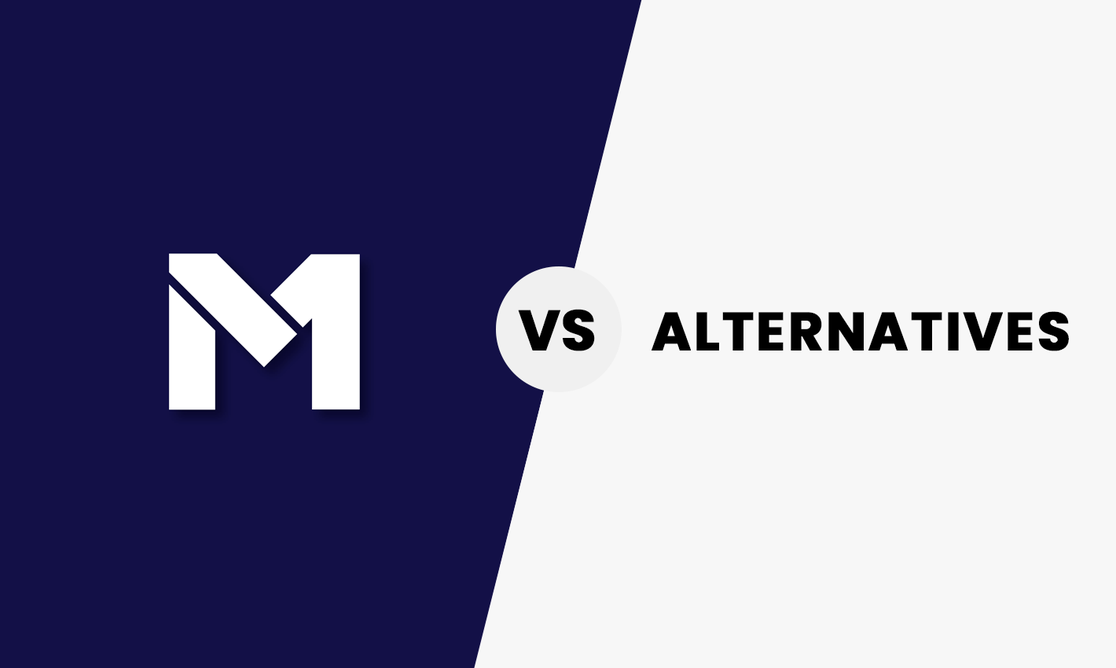- M1 Finance is a popular automated banking and investing service in the US.
- There is no direct replacement for it currently available in Canada.
- Finty's team of researchers have chosen alternatives based on comparable features.
M1 Finance suits investors that want to take a hands-off, passive approach to their investing strategy. With M1 Finance, you get to piggy-back off of the "pies" created by leading investment managers without the hassle of sourcing the assets yourself or allocating the percentage of each asset that makes up your portfolio.
M1 Finance offers investors a unique platform built on investing in pies, or portfolio allocations. When investors open accounts with M1 Finance, they have the option of choosing one of 100 different portfolio allocations designed by expert investors.
Each ‘pie” contains a weighted basket of assets, including stocks, bonds, ETFs, and other assets. Each of the assets represents a "slice" of the pie, and there are different pies to meet different investment goals and preferences.
For instance, the needs of someone that's 10 years from retirement are different from someone just entering the workforce. Therefore, M1 Finance offers you a range of strategies to meet your investment goals.
Unfortunately, M1 Finance isn't available to Canadian investors. However, there are some interesting alternatives in the local market, providing Canadians with comparable investment opportunities.

Our top pick
Wealthsimple Invest
Wealthsimple Invest is Canada’s leading robo-advisory firm, providing investors with a hands-off approach similar to M1 Finance.
With Wealthsimple, you get access to robo-advisors that manage your portfolio for you. Like M1 Finance, Wealthsimple allows investors to allocate funds to predesigned and managed portfolios created by expert investors.
For investors who want to avoid companies and funds invested in things like fossil fuels, you can choose to invest in socially responsible portfolios. Wealthsimple also offers you a debit card to link to your Apple Pay or Google Pay wallet for convenient transactions.
Pros
- Commission-free trading on stocks and ETFs.
- User-friendly mobile trading apps for iOS and Android devices.
- No minimum balance requirement.
- CIPF protection on account balances up to $1 million.
- Invest in TFSA and non-registered accounts.
Cons
- No margin accounts available.
- RESP accounts not available.
- No real-time market data.
- Not suitable for "scalping" strategies.

Runner-up
Qtrade
While you don't get the "pie" option of M1 Finance, Qtrade Investor is a great choice for investing in many of the same assets.
Qtrade Investor gives Canadian investors access to US markets, allowing them to invest in the same assets as M1, such as ETFs, mutual funds, stocks, and commodities.
Best of all, you don't need trading experience, and it's not necessary to understand how charts or price action works. You get simple order placement and an easy-to-navigate layout ― perfect for newcomers to investing.
Advanced traders can trade stocks and options, although the fees are higher than similar firms.
Pros
- Simplified trading platform with easy to understand charts.
- Managed portfolios available.
- Access to 100-commission-free ETFs and mutual funds.
- Discounted commissions for active day traders.
- Access to high-quality research by Scotia analysts.
- Demo account available for paper trading.
Cons
- Not available to US residents.
- No option for funding through credit cards or e-wallets.

Honourable mention
Questrade
Founded in 1999, Questrade is Canada’s largest independent fintech. An investor can choose between self-directed investment strategies or managed trading using investing strategies designed by leading asset managers.
Investors can choose from a portfolio of assets customized to your strategy, including options, stocks, bonds, commodities, and ETFs.
Questrade also offers competitive pricing and fee structures in comparison with the market, along with multiple trading platforms to suit your investment and trading experience.
Pros
- User-friendly, flexible trading platform.
- Free ETF purchases.
- Member of the Canadian Investor Protection Fund (CIPF).
- A wide variety of account options for traders.
- Research tools and education resources provided.
Cons
- Only accepts Canadian clients.
- Deposits only available in USD or CAD.
- High minimum deposit (CA$1,000).
- Restrictions on margin trading.
Worth a look
Scotia iTRADE
Scotia iTRADE is the retail brokerage division of Scotia Bank. As one of the "Big 5" banks in Canada, Scotia has a good reputation, and it's a solid choice for any trader that's nervous about opening accounts with a relatively new fintech.
Scotia iTRADE offers investors and traders access to the US and global markets. There is a range of assets available, including stocks, commodities, forex CFDs, and more.
Their platform suits active day traders with an interest in managing their portfolio or account themselves. If you're a Scotia Bank client, you also have the option to manage and transfer funds, pay your bills, and schedule future-dated payments.
Pros
- Discounted commission structures for active day traders.
- High-quality, award-winning trading platform.
- Access to market research by Scotia Bank’s top analysts.
- Demo account for practicing your strategy.
Cons
- Annual fees for registered and unregistered accounts.
- The Premium FlightDesk trading platform costs an additional monthly fee.
What an M1 Finance alternative should have
Investing automation
One of the best things about M1 Finance is how they have integrated banking with investing. They've made it very easy to set up a portfolio that's customized to your own preferences. Once set up, they place trades on your behalf automatically. They do not currently offer round-ups.
Tradable assets and market access
What kind of assets can your trade or invest in with the broker? What markets can you invest in? Do they offer stocks, ETFs, mutual funds, or other assets you want to invest in? Check that your broker offers the assets and geographies you want. Those in our list all have stocks and ETFs at the bare minimum, but others — Scotia iTRADE for example — have commodities and forex to trade.
Trading fees and commissions
When assessing a possible broker, you'll need to check the fee schedule and minimum balance requirement. Fees and commissions add up quickly, and they can eat away at your profits. Evaluate the fees per trade, currency conversion rates, commissions, monthly fees, and inactivity penalties to determine what broker is best for you.
User-friendly mobile apps
A good app is essential for modern trading. If you're away from your computer and want to keep an eye on your portfolio, a mobile app keeps you plugged into the market action. If you're trading volatile markets, a mobile trading app can help you take advantage of market volatility from any location without the need to boot up your trading station.
Demo accounts
Sign up for paper trading before placing real money in a trading account. It's a great way to test the efficacy of a broker's trading platform and order execution. If you're testing a trading strategy, a demo account can help you avoid making mistakes with real money while you learn the ropes.

